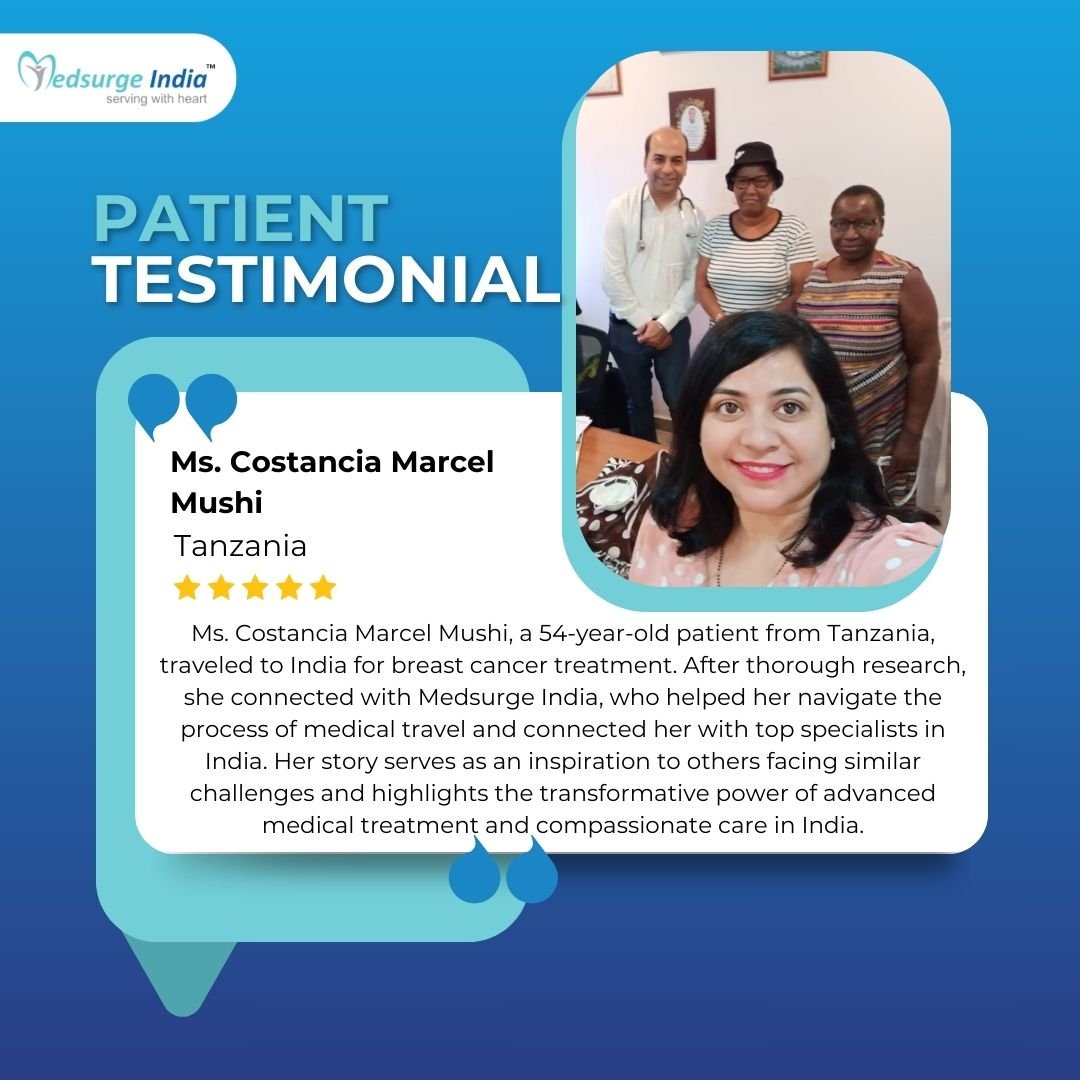
Blood flow can be impeded by a defective or damaged aortic valve, which makes the heart work harder to pump blood to the rest of the body. Aortic valve replacement or repair can increase blood flow, lessen heart valve disease symptoms, and lengthen life. If the aortic valve in your heart is malfunctioning, you might require this surgery. The main artery in your body, the aorta, receives blood from your heart when this valve opens, then it travels to the rest of your body. Aortic valve closure prevents blood from returning the wrong way to the heart. Every time the heart beats, this cycle continues. Aortic valve replacement in Turkey can be carried out in either traditional open heart surgery, which requires a cut in the chest or using minimally invasive techniques, which entail tiny incisions in the chest or the insertion of a catheter in the leg or chest. In comparison to the cost of the identical operation in nations like the United States, United Kingdom, Germany, and others, the cost of an aortic valve replacement in Turkey is much lower.
What Is an Aortic Valve Disease?
The aortic valve is a type of heart valve disease. The valve between the lower left heart chamber (left ventricle) and the main artery to the body (aorta) does not function properly in aortic valve disease. The aortic valve keeps blood flowing through the heart in the right direction.
Aortic valve replacement in Turkey is recommended is for patients who have:
- Congenital heart disease: Congenital heart disease refers to one or more structural problems with the heart that have existed since birth. Congenital means that you were born with the disorder. Adults and children with congenital heart disease can experience changes in the way blood flows through the heart.
- Aortic valve stenosis: When calcium deposits on the valve leaflets, further reducing their mobility, aortic valve stenosis advances.
- Aortic valve regurgitation: The term “leaky valve” and “valvular insufficiency” are also used to describe aortic valve regurgitation. The valve leaflets do not entirely close. Once the heart stops contracting and relaxes, regurgitation occurs, causing the blood that was just evacuated by the heart to flow back into the heart right away.
Why Turkey is a Top Destination for Aortic Valve Replacement?
Turkey, also known as a Eurasian country, is located at the crossroads of two continents. Turkey’s culture is a unique fabric that blends eastern and western elements, with a rich history as the successor state to the historic Ottoman Empire. Turkey, like the United States and Western Europe, is classified as a developed country and regional power. And one of the top ten medical tourism destinations in the world. Turkey is becoming increasingly popular as a destination for medical tourism. People from all over the world are planning to travel to Turkey to receive competent and excellent medical care for themselves and their loved ones. Above all, when compared to other countries, Turkey’s medical tourism costs are the lowest.
Turkey is a popular choice for medical tourism for several reasons, including;
- Accredited hospitals with modern equipment
- Superior health care services
- Affordable rates
- Service and culture
- Geographical place
- Traditional, historical, natural, and tourism destinations
Three important benefits of receiving medical treatment in Turkey are the low cost, high quality of care, and ease of access to top-notch care. Turkey’s main competitive advantage over other countries is the massive discounts it offers. Several operations are 50% to 70% less expensive than they would be in the EU. Turkey is perfectly situated, only two to three hours by plane from the major cities of the Middle East and Europe. More than 70 countries can enter Turkey without a visa.
Aortic Valve Replacement Cost In Turkey
The average cost for an aortic valve replacement in Turkey starts from USD 11,500. The choice to replace a valve is based on the patient’s clinical condition as indicated by diagnostic results and clinical symptoms. Sometimes the patient can have the mitral or aortic valve repaired rather than having to have the valve replaced. Open-heart surgery is the standard procedure for repairing the aortic valve. As a result, the choice is made following the patient’s physical inspection and evaluation. The patient must spend five days in the hospital and fifteen days elsewhere. The patient’s diagnosis and the facilities they choose will influence the overall cost of the treatment.
Factors That Can Affect Aortic Valve Replacement Cost in Turkey
- The type treatment opted for by the doctor
- The technique used
- The choice of hospital and city
- The doctor’s experience
- Hospital Type
- Room Style selected
- Patient’s Medical Condition
Get Free Cost Estimation
Procedure
How Aortic Valve Replacement Surgery is Performed?
General anesthesia is used during an aortic valve replacement surgery in Turkey. As a result, you won’t experience any pain as the procedure is being done while you’re asleep. Throughout the process:
- Your heart is stopped and a heart-lung (bypass) machine is used to take over the function of your heart during the procedure.
- A large cut (incision) about 25 cm long is made in your chest to access your heart. Although occasionally a smaller cut may be made, the damaged or faulty valve is removed and replaced with the new one.
- Your heart is restarted and the opening in your chest is closed. Typically, the procedure takes a few hours.
- After an aortic valve replacement, you’ll typically need to stay in the hospital for about a week, but it could take you two to three months to fully recover.
- When you initially go home, you should take it easy, but over the next few weeks, you should begin to gradually resume your regular activities.
How Do I Select a Hospital in Turkey for Aortic Valve Replacement Care?
Best Cardiac Hospitals in Turkey that treat aortic valve replacement patients are renowned for their warmth and attentiveness to their needs. These facilities have some of Turkey’s top cardiologists who are experts in their professions. For an international patient, selecting a good hospital for treatment might be challenging. It is a crucial choice that needs to be made while keeping a number of things in mind, such as:
- Accreditations and certifications for excellence
- Location of the hospital and the transit hub
- The medical and surgical team
- Modern diagnostic and treatment tools
- overseas medical help
How Can Medsurge India Help?
Medsurge India is a prestigious support system for patients looking for doctors, hospitals, and specialized treatments. We’ll find the most suitable medical options for you. Regarding your medical issues, our team will give you a list of certified, reputable, and trusted doctors and hospitals. Additionally, we offer a treatment strategy that fits your budget. Apart, we assist patients with obtaining travel authorizations, medical visas, and a multitude of other things.
The Most Important Frequently Asked Questions
Q: What Is the Severity of an Aortic Valve Replacement?
A: Aortic valve replacement is fraught with complications, some of which can be fatal. One in every 50 people who have this type of surgery dies as a result of complications during or shortly after the procedure.
Q: Is Aortic Valve Replacement a Major Surgical Procedure?
A: Transcatheter aortic valve replacement (TAVR) is a minimally invasive procedure used to replace an aortic valve that has narrowed and is unable to open properly (aortic valve stenosis). Surgeons insert a catheter into the leg or chest and guide it to the heart during this procedure.
Q: Can I Walk After Having an Aortic Valve Replaced?
A: The majority of patients report feeling better and stronger every day. Patients who have undergone MIVS are typically able to walk sooner than those who have undergone traditional open-heart surgery. The day after surgery, you will be encouraged to sit up and walk.
Q: How Long Do You Expect to Be in the Hospital for an Aortic Valve Replacement?
A: After an aortic valve replacement, you should expect to be in the hospital for about a week. The amount of time it takes to fully recover depends on factors such as your age and overall health. Your breastbone will usually heal in 6 to 8 weeks, but it may take 2 to 3 months to feel like yourself again.
Q: Which Heart Valve Is the Simplest to Replace?
A: The aortic valve is one of the four valves in the heart. The valves allow blood to flow normally through the four chambers of the heart and out to the body. The procedure is referred to as “minimally invasive” because it involves a smaller incision than a traditional open repair. This could make recovery from surgery easier and faster.
Top Hospitals for Aortic Valve Replacement In Turkey
Top Doctors for Cardiology And Cardiac Surgery
Prof. Dr. Nuran YAZICIOĞLU
Professor
Experience: 43 years of experience
Florence Nightingale Hospital, İstanbul
Istanbul, Turkey
Dr.Hakan Uçar
Consultant
Experience: 11 years of experience
Medical Park Group, Istanbul
Istanbul, Turkey
Dr. Engin Bozkurt
Senior Consultant
Experience: 33 years of experience
Medicana International Istanbul
Istanbul, Turkey
Dr. Alp Aslan Eryilmaz
Consultant
Experience: 18 years of experience
American Hospital, Istanbul
Istanbul, Turkey
Dr. Hasan Turhan
Professor
Experience: 24 years of experience
Yeni Yuzyil University Gaziosmanpasa Hospital, Istanbul
Istanbul, Turkey
Dr. Erdogan Aygar
Consultant
Experience: 21 years of experience
American Hospital, Istanbul
Istanbul, Turkey
Dr. Dilek Ural
Professor
Experience: 24 years of experience
KOC University Hospital, Istanbul
Istanbul, Turkey
Dr. Ece Yurtseven
Consultant
Experience: 7 years of experience
KOC University Hospital, Istanbul
Istanbul, Turkey
Dr. Prof. Kenan Abdurrahman Kara
Consultant
Experience: 10 years of experience
I.A.U VM Medical Park Florya Hospital, Istanbul
Istanbul, Turkey
Dr. Ulku Yildiz
Senior Consultant
Experience: 18 years of experience
Medicana International Istanbul
Istanbul, Turkey
Asst. Prof. Suha Cetin
Associate Professor
Experience: 12 years of experience
Okan University Hospital, Tuzla
Istanbul, Turkey
Dr. Mustafa Yazici
Associate Professor
Experience: 19 years of experience
Medicana International Istanbul
Istanbul, Turkey
Dr. Vedat Aytekin
Head of Department
Experience: 26 years of experience
American Hospital, Istanbul
Istanbul, Turkey
Dr. Semih Barlas
Professor
Experience: 24 years of experience
KOC University Hospital, Istanbul
Istanbul, Turkey
Dr. Gursel Ates
Consultant
Experience: 12 years of experience
Anadolu Medical Center, Kocaeli, Istanbul
Kocaeli, Turkey
Dr. Ahmet Anil Sahin
Associate Professor
Experience: 15 years of experience
İstinye Hospital, Bahçeşehir
Istanbul, Turkey































































